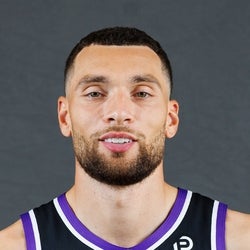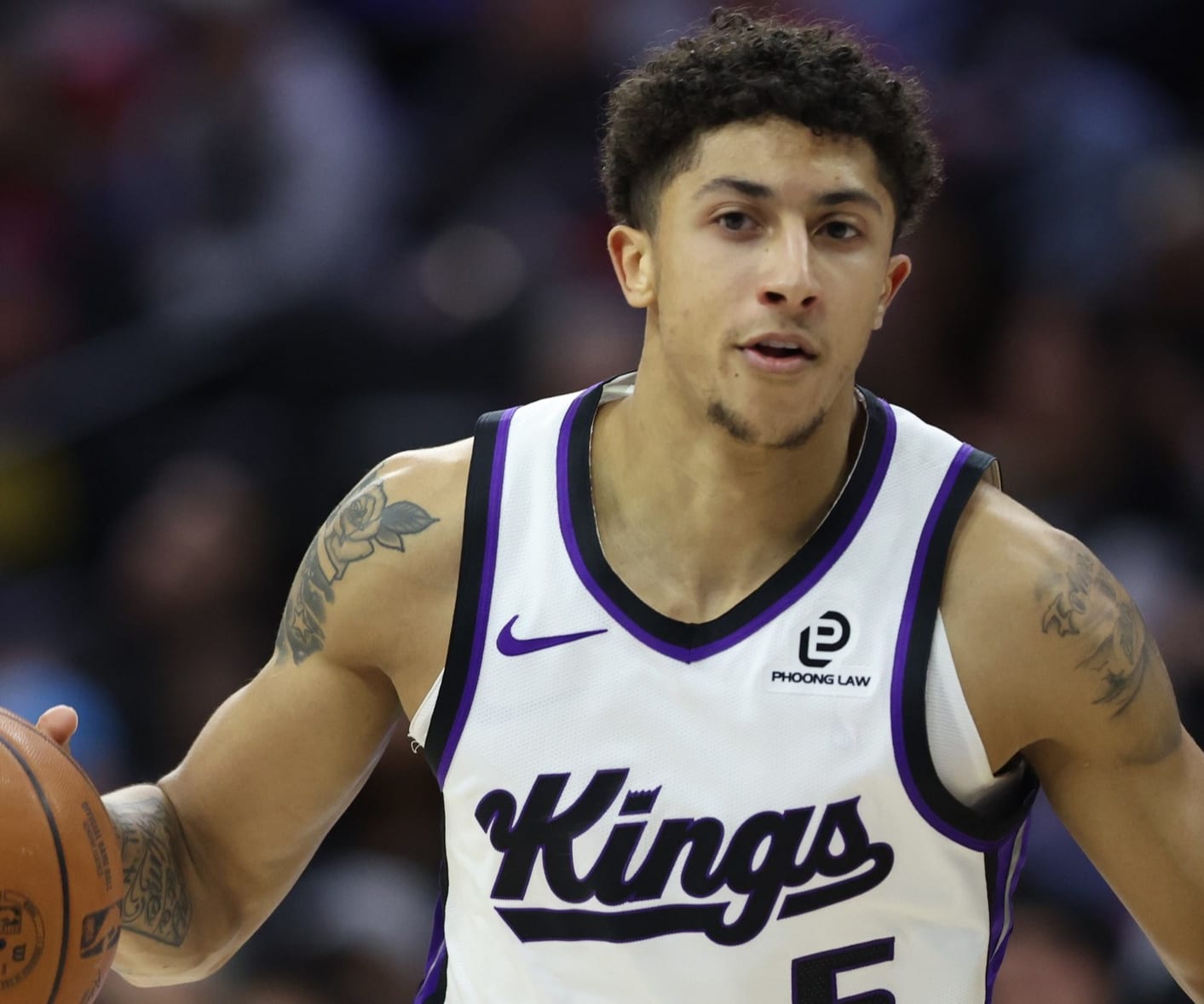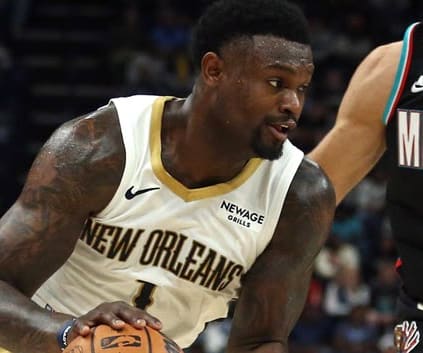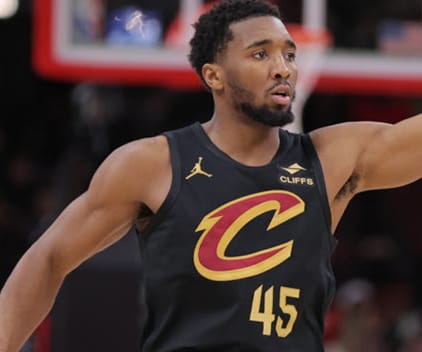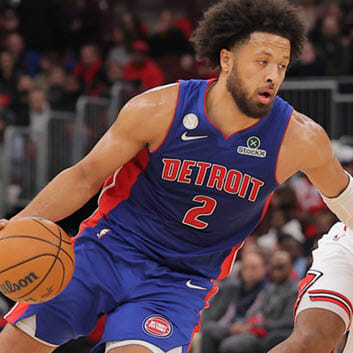OFS
Injury Hand
Est. Return 10/1/2026
2025 Stats
PTS
19.2
REB
2.8
AST
2.3
STL
0.7
BLK
0.3
ROS Projections
2025 Fantasy Outlook
After a mid-season trade to Sacramento, LaVine saw a slight drop in production across the board, but he was still a go-to offensive player, averaging 22.4 points, 3.8 assists, 3.5 rebounds and 3.2 made three-pointers in 36.6 minutes per game. However, he's never been able to produce much on the defensive end, averaging over 1.4 stocks per game only once in 11 seasons. Despite switching teams, LaVine finds himself in a familiar situation. He'll have to share usage with DeMar DeRozan, a high-usage center (formerly Nikola Vucevic, now Domantas Sabonis) and a flamethrowing guard (formerly Coby White, now Malik Monk). LaVine had no issues submitting strong fantasy campaigns when DeRozan was in Chicago. If you take away the 2023-24 campaign when he played in a career-low 25 games, the former has ended inside the top 35 in eight-category leagues in five straight seasons, including three top-20 finishes. LaVine may never take 20 shots a night again, but he has proven to be an efficient secondary scorer, and he shot career highs from the field (51.1) and three-point range (44.6) last season. He posted an 82.5 percent mark from the charity stripe, his lowest since 2019-20, but even with the slight dip, getting to the free-throw line and converting at a solid clip remains one of the strongest parts of his game. If he can maintain his efficiency, LaVine could be a draft-day steal in the middle rounds despite an expected drop in overall usage. Read Past Outlooks
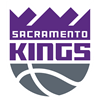
To undergo season-ending surgery
LaVine will undergo season-ending surgery on his right hand after the All-Star break, Chris Haynes of NBA TV reports.
ANALYSIS
After missing Sacramento's final three outings before the All-Star break due to right finger soreness, LaVine is scheduled to undergo season-ending hand surgery. The veteran swingman will finish the 2025-26 season with averages of 19.2 points, 2.8 rebounds and 2.3 assists while shooting 47.9 percent from the field and 39.0 percent from downtown across 31.4 minutes per contest in 39 regular-season games (37 starts). He holds a $48.97 million player option for the 2026-27 campaign. With LaVine sidelined, Nique Clifford should continue to see an expanded role, while Malik Monk (illness) and Devin Carter are also candidates for increased playing time.
After missing Sacramento's final three outings before the All-Star break due to right finger soreness, LaVine is scheduled to undergo season-ending hand surgery. The veteran swingman will finish the 2025-26 season with averages of 19.2 points, 2.8 rebounds and 2.3 assists while shooting 47.9 percent from the field and 39.0 percent from downtown across 31.4 minutes per contest in 39 regular-season games (37 starts). He holds a $48.97 million player option for the 2026-27 campaign. With LaVine sidelined, Nique Clifford should continue to see an expanded role, while Malik Monk (illness) and Devin Carter are also candidates for increased playing time.
NBA Per Game Stats
Per Game
Total
Per 36
NBA Per Game Stats
Loading Per Game Stats...
2025 NBA Game Log
2025
2024
2023
2022
2021
2020
2019
2018
2017
2016
2025 NBA Per Game Split Stats
Schedule
By Month
Starting/Off Bench
Days Rest
Vs Opp
By Result
2025 NBA Per Game Split Stats
Loading Split Stats...
Advanced Stats
Loading Advanced Stats...
Stat Review
2025
2024
2023
2022
2021
2020
2019
2018
2017
2016
How does Zach LaVine compare to other players?
This section compares his stats with all players from the previous three seasons (minimum 200 minutes played)*. The bar represents the player's percentile rank. For example, if the bar is halfway across, then the player falls into the 50th percentile for that stat and it would be considered average.
True Shooting %
61.4%
Effective Field Goal %
56.9%
3-Point Attempt Rate
46.4%
Free Throw Rate
26.0%
Offensive Rebound %
0.7%
Defensive Rebound %
9.4%
Total Rebound %
4.9%
Assist %
11.5%
Steal %
1.0%
Block %
0.7%
Turnover %
9.5%
Usage %
23.8%
Fantasy Points Per Game
27.0
Fantasy Points Per Minute
0.9
NBA Historical Fantasy Stats
Historical ADP
Loading Historical ADP...
Kings Depth Chart
Our full team depth charts are reserved for RotoWire subscribers.
Subscribe Now
Kings Rotation: Minutes Breakdown
Loading Kings Rotation Data...
Average Fantasy Points
Minutes
FanDuel
DraftKings
Yahoo
FantasyDraft
Head2Head
Sorare
Average Fantasy Points are determined when Zach LaVine was active vs. non-active during the season. Click here to view average fantasy points for a different time period.
Loading Average Minutes...
Past Fantasy Outlooks
2024
2023
2022
2021
2020
2019
2018
2017
2016
2015
2014
Last season was one to forget for LaVine, playing just 25 games due to a right foot injury. He closed as the 81st-ranked player in nine-category leagues per game, his worst return since the 2017-18 season. With averages of 19.5 points, 5.2 rebounds, 3.9 assists, 0.8 steals and 2.4 three-pointers, it's fair to say LaVine was a non-factor for the majority of the season. In what has been an offseason full of rumors, LaVine's name continues to be thrown around in potential trade scenarios, albeit hypothetical ones. At this stage, a suitor has not been found, meaning LaVine will likely open the 2024-25 season as a member of the Bulls. Coming off such a disappointing campaign, managers are within their rights to let LaVine fall in drafts. However, his mentality coming into the season could have him in a position to surprise many. Before last season, LaVine had been a top-50 player for four straight years. With DeMar DeRozan no longer on the roster, LaVine could find himself back at the top of the offensive pecking order, or at least adjacent to Coby White. LaVine's floor remains relatively safe, at least on a per-game basis. Assuming he is healthy and ready to prove people wrong, LaVine could be a difference-maker this season, if managers can grab him in the sixth or even seventh round.
More Fantasy News

Out for Wednesday
LaVine (finger) is out for Wednesday's game against the Jazz.
ANALYSIS
Subscribe now to instantly reveal our take on this news.
Subscribe now to instantly reveal our take on this news.

Won't play Monday
LaVine (finger) has been ruled out for Monday's game against the Pelicans.
ANALYSIS
Subscribe now to instantly reveal our take on this news.
Subscribe now to instantly reveal our take on this news.

Ruled out Saturday
LaVine (finger) has been ruled out for Saturday's game against the Cavaliers.
ANALYSIS
Subscribe now to instantly reveal our take on this news.
Subscribe now to instantly reveal our take on this news.

Pops for 35 points
LaVine finished Sunday's 116-112 loss to Washington with 35 points (13-26 FG, 4-10 3Pt, 5-5 FT), six rebounds, two assists and one steal in 35 minutes.
ANALYSIS
Subscribe now to instantly reveal our take on this news.
Subscribe now to instantly reveal our take on this news.

Starting Friday vs. Boston
LaVine is in the Kings' starting lineup against the Celtics on Friday, Sean Grande of NBC Sports Boston reports.
ANALYSIS
Subscribe now to instantly reveal our take on this news.
Subscribe now to instantly reveal our take on this news.
Latest Fantasy Rumors

Expected to pick up option
LaVine is expected to pick up his $48.9 million player option for the 2026-27 season, Sam Amick of The Athletic reports.
ANALYSIS
"This was widely assumed to be the case, of course, and has everything to do with the fact that he's not expected to be moved by the deadline," Amick adds. Despite months of speculation, the market for LaVine appears to be minimal at best with teams being unwilling to absorb his bloated contract.
"This was widely assumed to be the case, of course, and has everything to do with the fact that he's not expected to be moved by the deadline," Amick adds. Despite months of speculation, the market for LaVine appears to be minimal at best with teams being unwilling to absorb his bloated contract.
